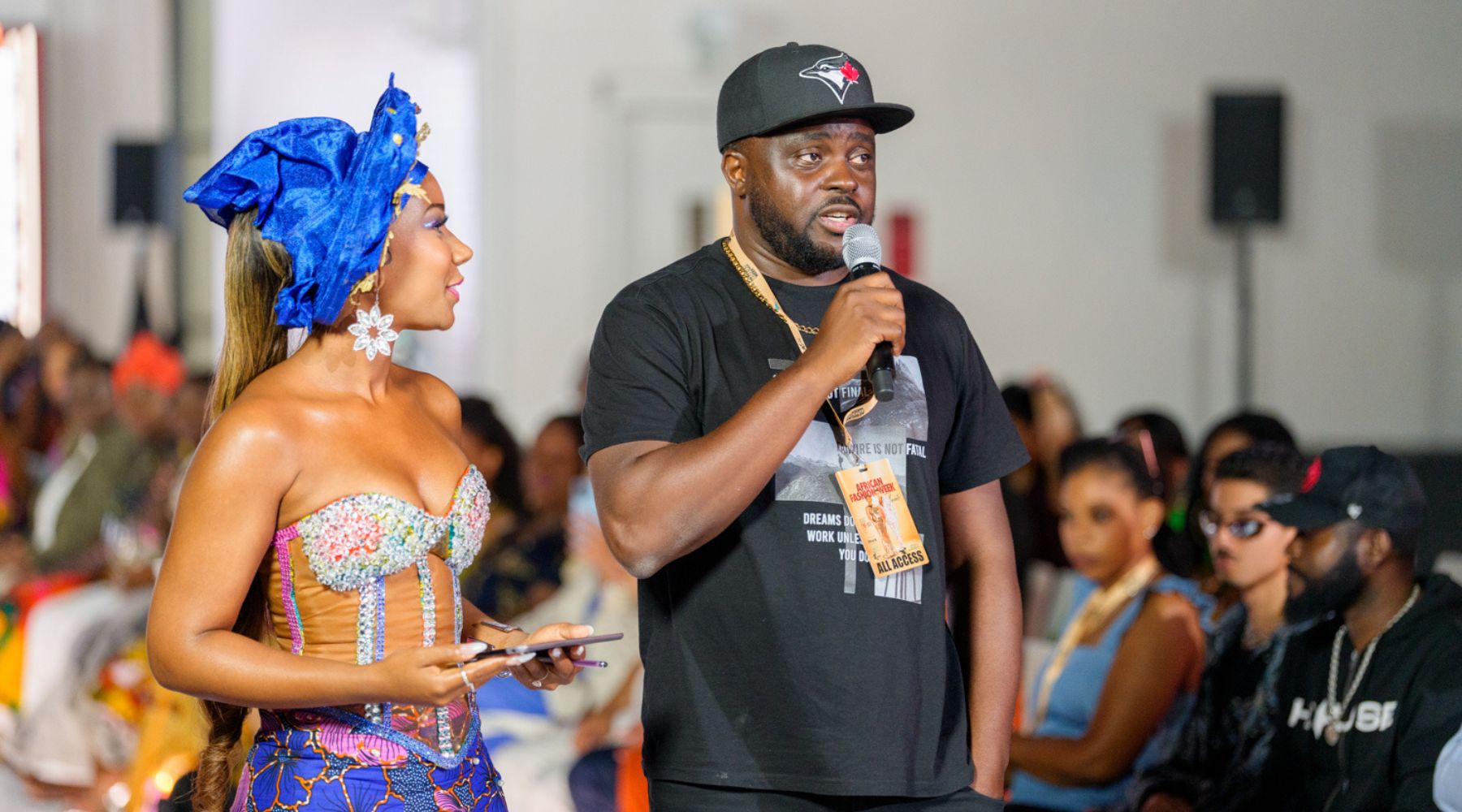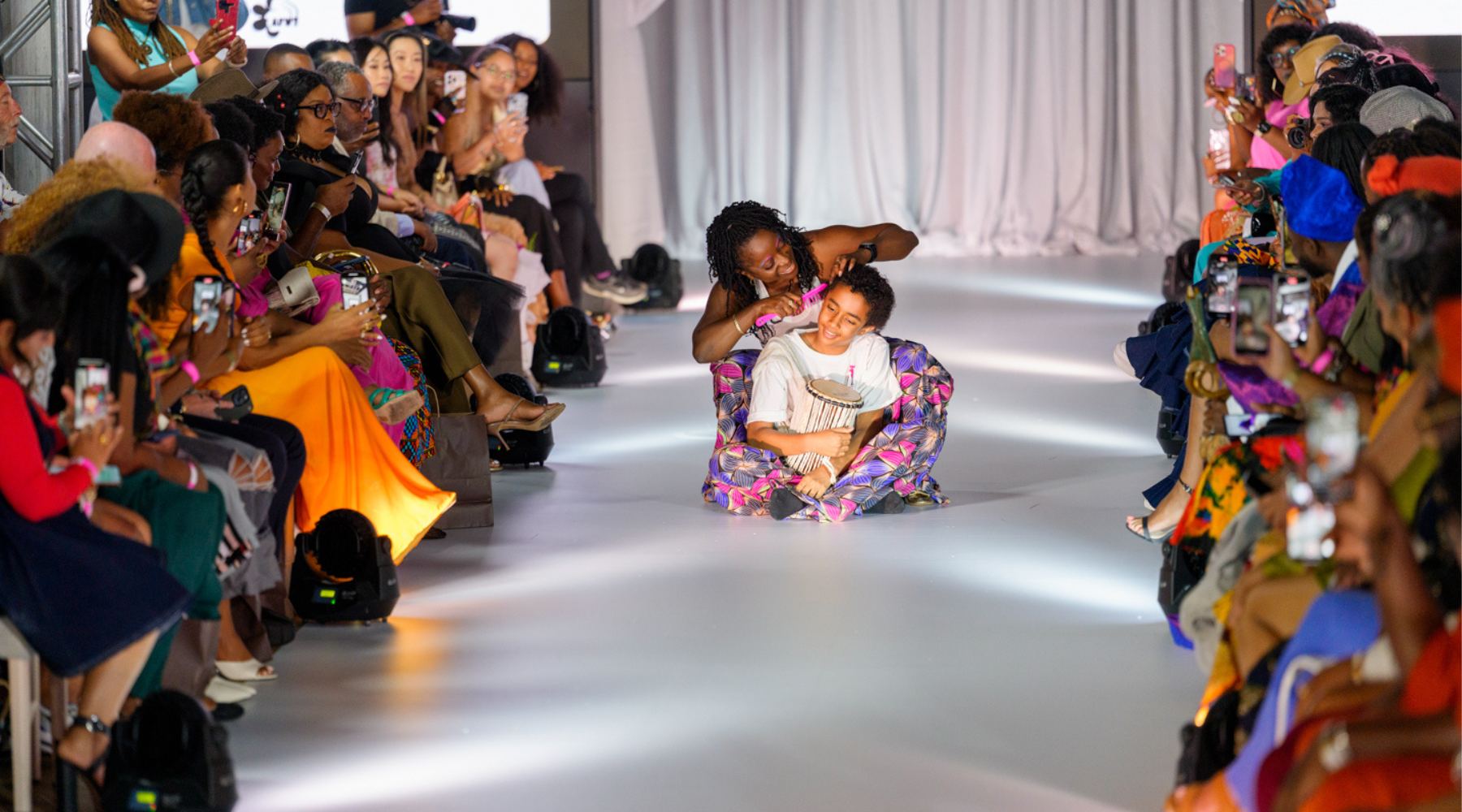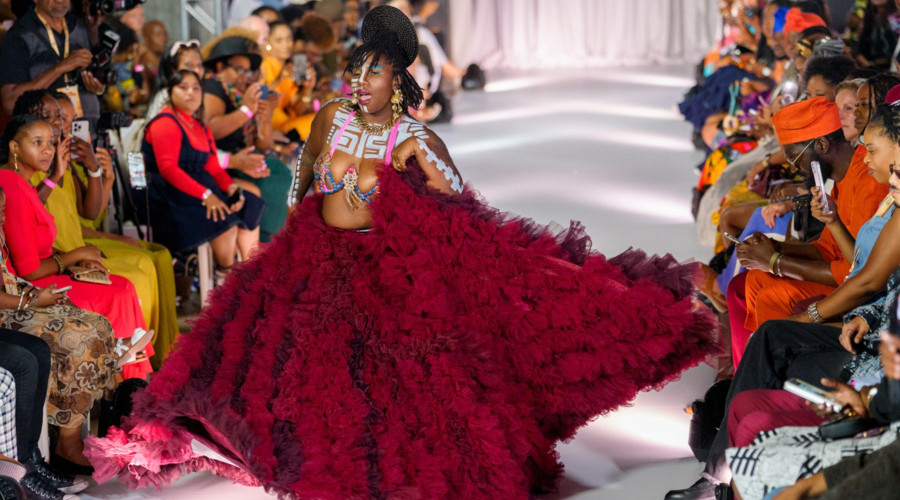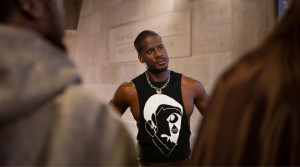Fast forward to August 2025, and AFW just wrapped its 14th year—drawing over 2,000 people to Sankofa Square and proving that African fashion is way more than what Western media wants you to believe.
Léopold Sédar Senghor, Senegal's first president and co-founder of the Négritude movement, knew culture was the foundation of everything. Back in the 20th century, while the Black world was shaking off colonialism, Négritude used art and culture to combat European racism and build Pan-African identity.
That same energy? It's alive at AFW.
Ansah got the vision while organizing the University of Windsor Sports Weekend as a student—the biggest Black student event in Ontario. "We did fashion, music, all that stuff," he says. "I took that experience with me when I came out of university and just decided, you know what? I have to do it now."

But starting AFW meant fighting the same battle the original Négritude founders faced: educating people about the richness of African culture when Western standards still dominate everything from beauty products to runway aesthetics.
"We had to fight with trying to educate our own people first about African fashion, because a lot of people were not aware of the African continent," Ansah says.
Here's what people think African fashion is: "Some fabrics, some Dashikis or Kente fabrics or African prints just running, parading on the runway."
Here's what it actually is: High fashion. Couture. Everyday wear that slaps. Innovation that makes Western runways look boring.
AFW exists to show the world there's way more to African fashion than tired media portrayals. And it's working. The showcase has opened doors for Black creators who've been tokenized or shut out entirely from an industry that acts like it doesn't want them there.
"We don't have enough seats at the table in Canada, so it's on us to create that opportunity for our people," Ansah says.
Running AFW costs close to $160,000. Ticket sales? They don't come close to covering it.
"In this industry, anyone that understands that you can't really depend on ticket sales because you're gonna have a lot of free invites," Ansah explains. Marketing agencies, influencers, and PR folks get comped to spread the word.
So how does it happen? Grants and sponsorships. Shark Beauty has backed the event for two years running. And by partnering with the Afro Centre for the Arts—a Toronto nonprofit founded in 2018—AFW can access grant money without officially registering as a nonprofit.
It's strategic, it's necessary, and it keeps the runway lights on.
A Platform That Actually Platforms
This year's AFW brought 96 models to the runway. Eighty percent of them were brand new to the industry.
Read that again.
AFW isn't just for established names—it's actively building the next generation. Amateur models get professional experience on well-attended runways. Designers, photographers, and creatives from across the diaspora—Africa, Brazil, the Caribbean, Britain—get to network and grow. Several models have landed contracts after walking in AFW shows.
"We are proud to say we have built a lot of models in the city from this platform," Ansah says.
Small businesses benefit too. Iyimide Shola-Shittu, CEO of Winsome by TAH—a botanically inspired beauty brand specializing in lip products—knows social media isn't everything. "We also build real connections through pop-ups, surveys and community co-creation moments." AFW gave her brand massive exposure, with samples included in VIP goodie bags reaching hundreds of potential customers.

In an era when Canadians are shopping local instead of defaulting to U.S. brands, Black-owned businesses like Winsome by TAH are stepping up for the community.
When AFW started, finding Black designers in Toronto was hard. Now? The city is full of them.
"I'm not going to say it's all because of AFW, but Toronto now has so many Black designers whereas when we started there were only Black seamstresses," Ansah says.
That shift matters. It's the difference between being recognized for your craft and being relegated to alterations in the back room.
The Future Is Already Here
Psychologist Frantz Fanon once critiqued Négritude for potentially trapping Black people in the past instead of innovating toward the future. But after visiting Kenya this summer and seeing the styles young Kenyans are creating, one thing is clear: African fashion isn't stuck anywhere.
AFW proves it. By rooting itself in cultural knowledge while staying hungry for innovation, the event keeps Toronto's fashion scene evolving.
Ansah is already planning 2026, ready to platform the next wave of designers, fashionistas, and creatives who understand that honouring your roots and building something new aren't opposites—they're the whole point.
From our hats to our shoes, Toronto is feeling the Négritude. And the industry better recognize.

 By
By 




